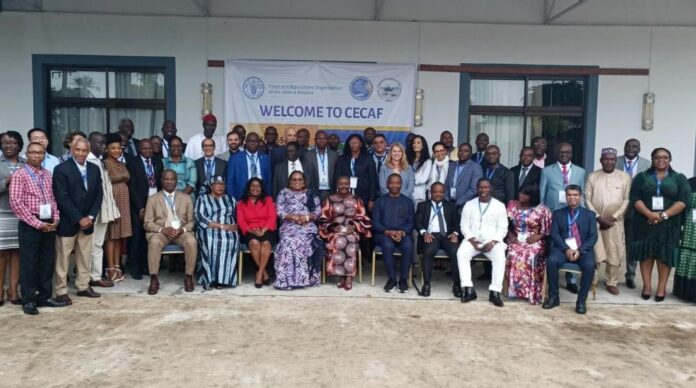Liberia’s National Fishery and Aqua-culture Authority (NaFAA) Boss has stressed the need for continue support to the fishery sector of the country for economic growth.
Speaking at the opening of the 23rd meeting of the Fishery committee for the Eastern central Atlantic (CECAF ) madam Emma Glasco said Liberia fisheries sector contributes approximately 12% of the agriculture Gross Domestic Product (GDP) and provides direct employment to at least 33,000 full time fishers, fishmongers and processors living along the coast.
She told the gathering that the marine capture fishery is the major revenue generation source of the sector, noting that it produces about 40,000 tons per year.
“The fisheries sector is important in the Liberia micro economic development as it strengthens the food security by providing about 65% of the national animal protein needs; it serves as a major source of employment and livelihoods diversification; and it provides the opportunity to generate foreign exchange and revenue”, she added.
She reminded delegates of 23rd Regular Session of the CECAF Committee that the singular objective is finding practical solutions to strengthen fisheries management and the sustainability of shared stocks in the region and Liberia is of no exception.
The Liberia fishery head told delegates at the opening of the conference that this year’s 23rd Session which is been held under the theme “Toward practical solutions to strengthen fisheries management and sustainability in CECAF region” marks a historic year for CECAF especially at a time of global recovery from the devastating impacts of the COVID-19 pandemic.
Speaking earlier Representative Prince O.S. Tokpa, the Liberia’s house of Representatives committee on Agriculture and Forestry expressed the numerous contributions been made by the fishery sector especially Liberia under the leadership of madam Emma Glasco.
Representative Tokpa addressing the opening of the 23rd CECAF meeting at the Farmington Hotel in Margibi County also pledged the House’s fullest support in ensuring that the fishery sector remains vibrant for economic growth.
For her part, FAO Liberia Representative, Bintia Stephen Tchicaya, added that since the creation of CECAF in 1967, it continues play an important role in the fisheries sector across the globe.
According to her, the contributions that CECAF scientists and experts provide are unique as a regional and neutral knowledge platform for its member nations to strengthen collaborations and share insights in the sector.
CECAF is an inter-governmental organisation established in 1967 under the auspices of the United Nations Food and Agricultural Organisation (FAO). Its main functions are to promote the rational use of fisheries resources, to assist in establishing a basis for regulatory measures and to encourage training.






















